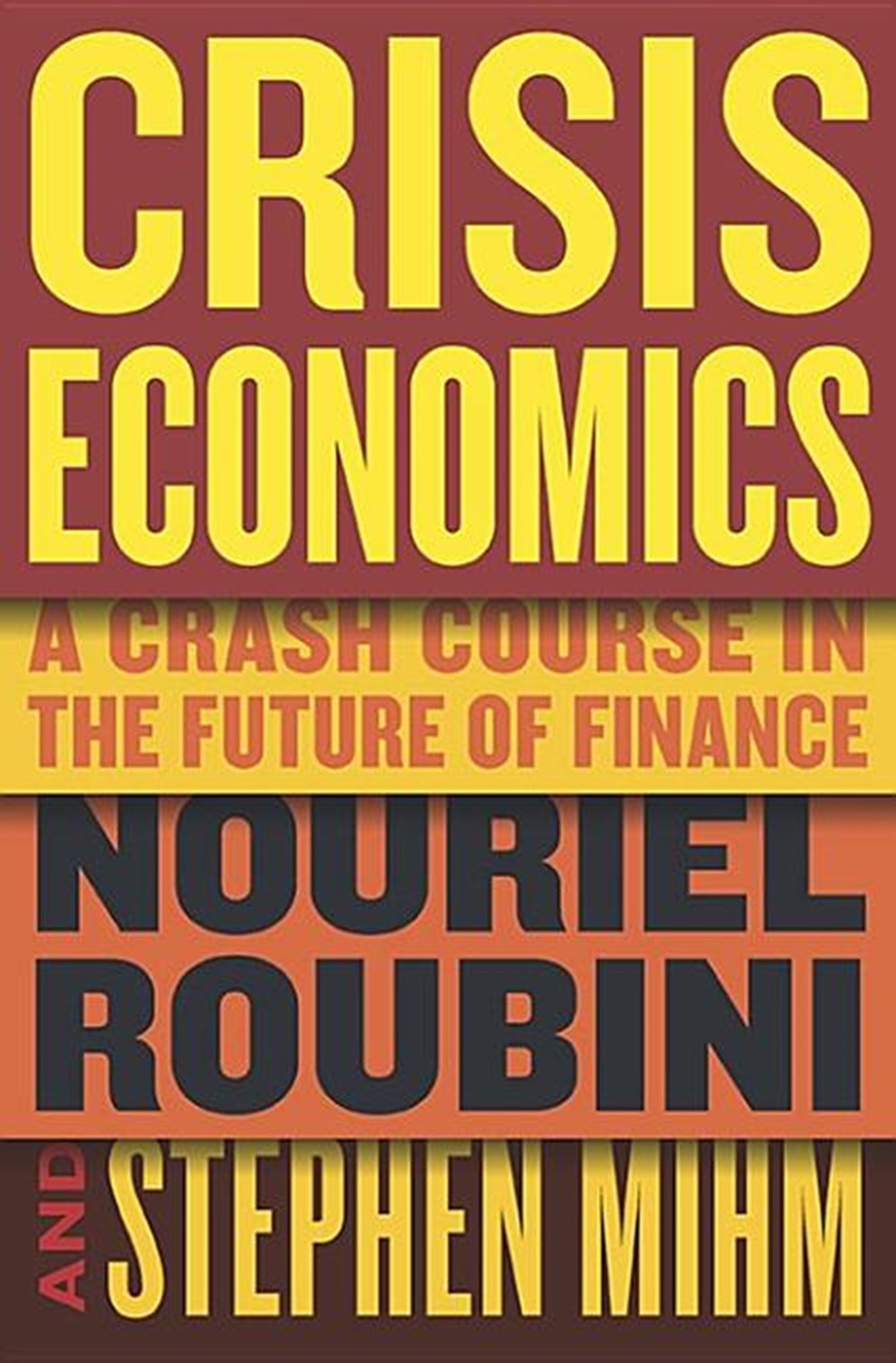
Crisis Economics: A Crash Course in the Future of Finance
This myth-shattering book reveals the methods Roubini used to foretell the current crisis before other economists saw it coming and shows how those methods can help to make sense of the present and prepare for the future.
| Quantity | Price | Discount |
|---|---|---|
| List Price | $27.95 | |
| 1 - 24 | $23.76 | 15% |
| 25 - 99 | $17.33 | 38% |
| 100 - 249 | $16.77 | 40% |
| 250 - 499 | $16.21 | 42% |
| 500 + | $15.93 | 43% |
Non-returnable discount pricing
$27.95
Book Information
| Publisher: | Penguin Press |
|---|---|
| Publish Date: | 05/11/2010 |
| Pages: | 368 |
| ISBN-13: | 9781594202506 |
| ISBN-10: | 1594202508 |
| Language: | English |
What We're Saying
Here's a list we missed late last month. Though the post is rather cryptically titled Hellhound Bites Citigroup, Schwarzman Finds Gold Mine: Top Business Books, Bloomberg's James Pressley explains exactly why they put the list together: With so many business books being published each month, we’re often asked for recommendations. Here are 30 of our favorite hardbacks published this year. READ FULL DESCRIPTION
Full Description
This myth shattering book reveals the methods Nouriel Roubini used to foretell the current crisis before other economists saw it coming and shows how those methods can help us make sense of the present and prepare for the future.
Renowned economist Nouriel Roubini electrified his profession and the larger financial community by predicting the current crisis well in advance of anyone else. Unlike most in his profession who treat economic disasters as freakish once-in-a-lifetime events without clear cause, Roubini, after decades of careful research around the world, realized that they were both probable and predictable. Armed with an unconventional blend of historical analysis and global economics, Roubini has forced politicians, policy makers, investors, and market watchers to face a long-neglected truth: financial systems are inherently fragile and prone to collapse.
Drawing on the parallels from many countries and centuries, Nouriel Roubini and Stephen Mihm, a professor of economic history and a "New York Times Magazine" writer, show that financial cataclysms are as old and as ubiquitous as capitalism itself. The last two decades alone have witnessed comparable crises in countries as diverse as Mexico, Thailand, Brazil, Pakistan, and Argentina. All of these crises-not to mention the more sweeping cataclysms such as the Great Depression-have much in common with the current downturn. Bringing lessons of earlier episodes to bear on our present predicament, Roubini and Mihm show how we can recognize and grapple with the inherent instability of the global financial system, understand its pressure points, learn from previous episodes of "irrational exuberance," pinpoint the course of global contagion, and plan for our immediate future. Perhaps most important, the authors-considering theories, statistics, and mathematical models with the skepticism that recent history warrants explain how the world's economy can get out of the mess we're in, and stay out.
In Roubini's shadow, economists and investors are increasingly realizing that they can no longer afford to consider crises the black swans of financial history. A vital and timeless book, "Crisis Economics" proves calamities to be not only predictable but also preventable and, with the right medicine, curable."
Renowned economist Nouriel Roubini electrified his profession and the larger financial community by predicting the current crisis well in advance of anyone else. Unlike most in his profession who treat economic disasters as freakish once-in-a-lifetime events without clear cause, Roubini, after decades of careful research around the world, realized that they were both probable and predictable. Armed with an unconventional blend of historical analysis and global economics, Roubini has forced politicians, policy makers, investors, and market watchers to face a long-neglected truth: financial systems are inherently fragile and prone to collapse.
Drawing on the parallels from many countries and centuries, Nouriel Roubini and Stephen Mihm, a professor of economic history and a "New York Times Magazine" writer, show that financial cataclysms are as old and as ubiquitous as capitalism itself. The last two decades alone have witnessed comparable crises in countries as diverse as Mexico, Thailand, Brazil, Pakistan, and Argentina. All of these crises-not to mention the more sweeping cataclysms such as the Great Depression-have much in common with the current downturn. Bringing lessons of earlier episodes to bear on our present predicament, Roubini and Mihm show how we can recognize and grapple with the inherent instability of the global financial system, understand its pressure points, learn from previous episodes of "irrational exuberance," pinpoint the course of global contagion, and plan for our immediate future. Perhaps most important, the authors-considering theories, statistics, and mathematical models with the skepticism that recent history warrants explain how the world's economy can get out of the mess we're in, and stay out.
In Roubini's shadow, economists and investors are increasingly realizing that they can no longer afford to consider crises the black swans of financial history. A vital and timeless book, "Crisis Economics" proves calamities to be not only predictable but also preventable and, with the right medicine, curable."


